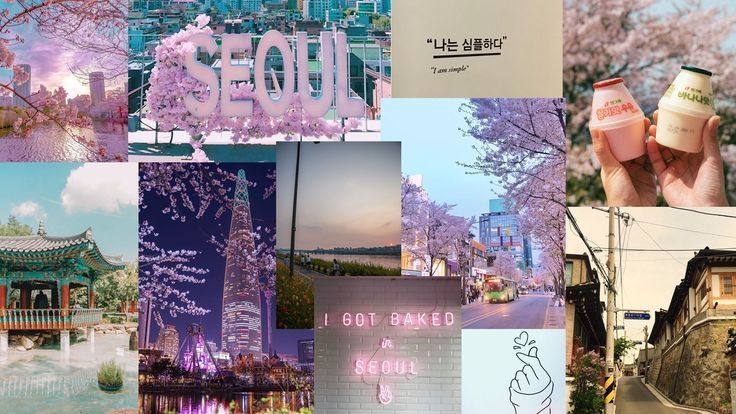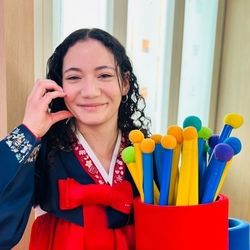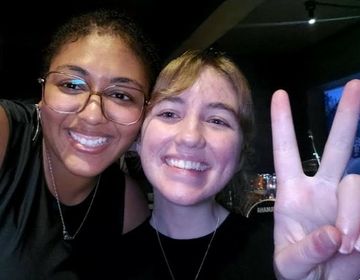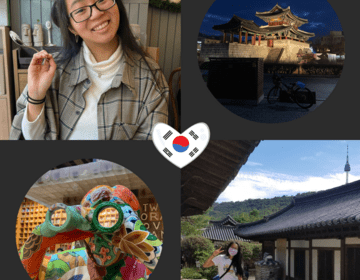How to Prepare for Living and Teaching South Korea
So, you’ve made it through everything, the application process, getting TEFL certified, interviews, the visa process, and booking the flight. PHEW! Give yourself a round of applause! Preparing to teach abroad takes a lot of work and requires you to go through things you may be experiencing for the first time which can be stressful and overwhelming… And sadly yet excitingly the work is not done yet. There are many other things that must be prepared besides the official and legal documents. AND the most important thing that must be prepared is YOU <3
MINDSET
First, in order to prepare yourself to move abroad to South Korea you have to shift your mindset. The US and South Korea are quite different. In obvious ways there are differences in culture, language, food, and customs. In less obvious ways there are differences in etiquette, personal relations, and beliefs. Before your arrival in South Korea you should definitely do your research on the lifestyle in South Korea. You can watch YouTube videos about people who currently live there, look up tiktoks (@cieeteach & k.y.slife and others), check instagram (@cieeteach & kyleah _parr and others), as well as reading blogs like this one.
Now, to start off your research and education journey, I would suggest thinking about what is important to you and then research what is important in Korean culture. Do these things align or will you have to make some adjustments when you move abroad? Adjustments as in having respect for Korean culture and acknowledging that your beliefs and theirs are different and being able to determine when you need to speak up or let it go. For example, I have been teaching abroad for almost 2 years now. Before I came to Korea, I knew that academics were pushed onto young Koreans very early on and that the pressure was high. In the beginning of my career as an English Teacher I went along with this mindset because I was also still learning what I was able to do in my classroom and being watched closely. However, when I became comfortable, it did not sit right with me that my students were crying about getting a 95 on their tests and not celebrating their accomplishments. I had to teach my students that one wrong or even one bad grade was okay because it did not mean that they were a bad student. I also make my lessons more interactive and fun for the students because they are children and some of them study from 8am until 8pm at the age of 8 years old.
I would also, most importantly, shift your mindset into one of open-mindedness. You will be exposed to a new culture, new food, new styles, new people, new mannerisms, etc. and all of this exposure takes time to adjust and accept so be open to the changes.
EXPECTATIONS
Along the way, as you do your own research into living abroad in South Korea, you will begin to realize some things. The reality… Especially as a K-pop or K-drama fan the reality of what life is actually like living abroad in Korea hits hard.
Yes, South Korea is beautiful and has many nice people and you will experience some k-drama moments that will make your heart flutter. Buuuut, South Korea is like any other country. It has its issues and people who are not so kind. South Korea is getting better with the K-wave exposing Korean culture to more foreigners. However, it does not change the fact that Korea is a homogenous society with a community mindset that can lead to some people expressing xenophobia or racism towards foreigners. These instances can range from simply glaring at you on public transport, moving away or not wanting to sit next to you to saying rude things and throwing things or spitting at you. You can search on YouTube for people's stories of dealing with racism in South Korea. Thankfully, I have been fortunate enough in my city to only have experienced the stares and glares.
Also, K-dramas and K-pop make South Korea appear glamorous, while some parts are truly beautiful others are not. Seoul is basically a New York City population in a small space… now I know you don’t think it doesn't smell there… Like any other city, people can be rude, pushing and shoving (especially here where personal space bubbles are much smaller) and the sewage is sewaging…
Another thing that I had to get used to while living here was the lack of customer service that I am used to receiving. Obviously most servers and cashiers will not be outrightly rude to you, but it is a very simple transaction with little to no smiles, just hellos, thank yous, and goodbyes. I do miss the how are yous, have a good days, and other simple phrases or gestures that made me feel better about purchasing 3 coffees a day. It's nothing crazy, but coming from a southern town where everyone calls you “honey” or “sweetie” it was an adjustment. Aaaannnd you will have to make plenty of those when you arrive in South Korea.

LANGUAGE
Now, I do have some tips to help readers and future travelers get adjusted in some areas of their lives before and during their time abroad.
First, learn the language. I know people say it.. And they say it because it is true. Before coming to South Korea for the first time in 2019, I learned only basic phrases (hello, thank you, goodbye, etc.) and how to read the alphabet. It wasn’t a lot, but it did help me read signs, classroom names, street names, location names, menus, etc. I was able to order fairly okay in restaurants and cafes. However, I took a Korean language course and I continued self study on and off for a bit before returning to Korea with Duolingo and Youtubers (like Korean Unnie) and it helped me a lot. When I came back to Korea this time around, I realized I needed korean. I taught kindergarten (4-7 years old) and sometimes I would be alone with the students. My Korean, no matter how limited, allowed me to figure out most problems for myself. I will also say you do not have to learn it intensely because once you arrive you will learn a lot through immersion, but knowing the basics is definitely helpful; especially for taxis.
PACKING
Speaking of taxis, because you will most likely be taking one from the station to your accommodation from your school with only two suitcases and a carry-on that you have to fit your whole life into so you can live comfortably for a year…. packing …
When packing for South Korea to stay abroad for a year, you should adhere to these 2 GOLDEN RULES.
- Pack for all seasons. South Korea has Fall, Winter, Spring and Summer. Now, obviously some areas will be a bit different so it all depends on where you live which seasons get more attention. Some examples would be, Seoul and other northern cities get snow in the winter. Daegu is extremely hot and humid in the summer. Busana nd southern cities are super windy so watch your umbrellas in the wet seasons. That’s another thing, Korea has a wet season with Typhoons so pack a raincoat and rain boots or purchase them upon arrival. (Also, pack an emergency bag, just in case, Korea also gets earthquakes and landslides (it's a very mountainous country) so it is best to be prepared.)
- Leave Space. I was advised by all of my Korean friends and every Korean that I met to go to Korea with an empty suitcase. Now, you can't necessarily do that if you're living there for a year. So, I packed one big suitcase half full of clothes and then extra monthly supplies of items I wanted from the US (like curly hair products (most koreans have straight hair or they chemically straighten it so it is very hard to find hair products, but you can use Coupang to order from other countries), different style of clothes (most koreans wear street style, business casual, or all black so most stores carry a similar style), feminine products (the products here have different materials and come in smaller sizes so be prepared if your flow is different), etc. By limiting my clothing choices and packing things that would slowly dwindle down to nothing. I was able to save a lot of space for all of the souvenirs and presents that I am bringing back this year.
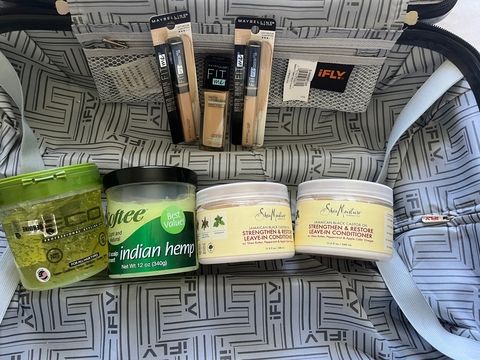
RECAP (What to do in the coming months)
Now, I have thrown a lot of information at you so just to recap, in the coming months before you depart for South Korea, you should:
- Change your mindset to an open one
- Readjust your expectations through research
- Learn some Korean
- Pack well
- AND get excited :D YOU’RE GOING TO SOUTH KOREA!!!
Related Posts
How to Go to the Doctor in South Korea as an English Teacher: A Guide to Healthcare and Health Insurance
As an English teacher in South Korea, maintaining good health is essential while living abroad. Navigating the healthcare system can seem daunting and stressful at first, especially if you can’t... keep reading
CIEE CHINGU – A Partner Program for Teachers in Korea
Chingu ( 친구 ) is the Korean word for friend . CIEE Chingu is a partner program included in CIEE’s Teach in South Korea programs! Our goal is to connect... keep reading
TWICE with CIEE: Kayleigh in Korea (PART 1)
Kayleigh is a CIEE alum who participated in CIEE's Teach in South Korea program AND CIEE’s Teach in Spain Volunteer program! CLICK HERE to read her experience in Spain. WHY... keep reading
